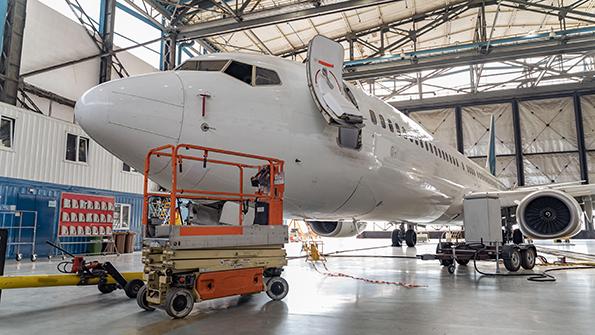This article is published in Aviation Week & Space Technology and is free to read until Sep 12, 2024. If you want to read more articles from this publication, please click the link to subscribe.
Opinion: Safety Management Systems Are Not A Bolt-on Solution

The FAA-EASA conference revealed differing governmental views on SMS and its implementation.
The 2024 FAA-European Union Aviation Safety Agency (EASA) International Safety Conference highlighted the aviation community’s preoccupation with safety management systems. The FAA expanded 14 CFR Part 5 and the EU/U.S. bilateral will add safety management system requirements to the special conditions for repair stations in Annex 2.
Under ARSA’s analysis, both government and industry need to make good on the promise of “safety management”—a concept based upon communication that opens doors to compliance-focused oversight. Governments must categorize certificate holders by risk to the National Airspace System (NAS) and support integrated compliance systems with a comprehensive oversight system that can ensure safety in the NAS is the top priority. For certificate holders, safety management systems (SMS) cannot be bolted on; they must be integrated into the business of aviation. That means both the government and industry must recognize the safety continuum is contained in 14 CFR, and a certificate holder’s business must be focused on maintaining compliance for the agency to minimize its oversight.
How can the regulator demand and oversee SMS if it punishes certificate holders for revealing noncompliance? The FAA-EASA conference revealed differing governmental views on SMS and its implementation. On one side are the regulators who believe an agency’s role is to find compliance through a corporate culture more conducive to open communications—the backbone of safety management. The other, government (which do you think?), takes the more hidebound approach of hunting noncompliance and forcing corrective action based on guidance or preference rather than the safety analysis required by the rules. The result is defensiveness and mistrust, which are destructive to SMS. Mistrust is not removed by silence; it can only be addressed through open, honest, boundary-pushing communications that do not punish noncompliance indiscriminately.
A true SMS should be the pinnacle of open communication and reconciliation of safety hazards that encompasses all aspects of the government and business relationship. It must be integrated into existing requirements, not piled on top of numerous programs designed to elicit self-disclosure and corrective or remedial action (e.g. aviation safety action programs, hotline and whistleblower systems, and other avenues to communicate about noncompliant behaviors or actions).
Governments are required to follow laws dictating interaction with the public. Those requirements need to be fully embraced as opportunities, not as excuses for avoiding or ignoring information from interested parties. Certificate holders meet regulatory standards to demonstrate system safety. Their business strategies must protect private interests while eliciting information detrimental to safety or profit. To avoid creating more opportunities for miscommunication, mistakes and mistrust, SMS cannot just be added to the existing systems—it must be integrated.
Sarah MacLeod is managing member of Obadal, Filler, MacLeod & Klein, P.L.C. and a founder and executive director of the Aeronautical Repair Station Association. She has advocated for individuals and companies on international aviation safety law, policy and compliance issues since the 1980s.




